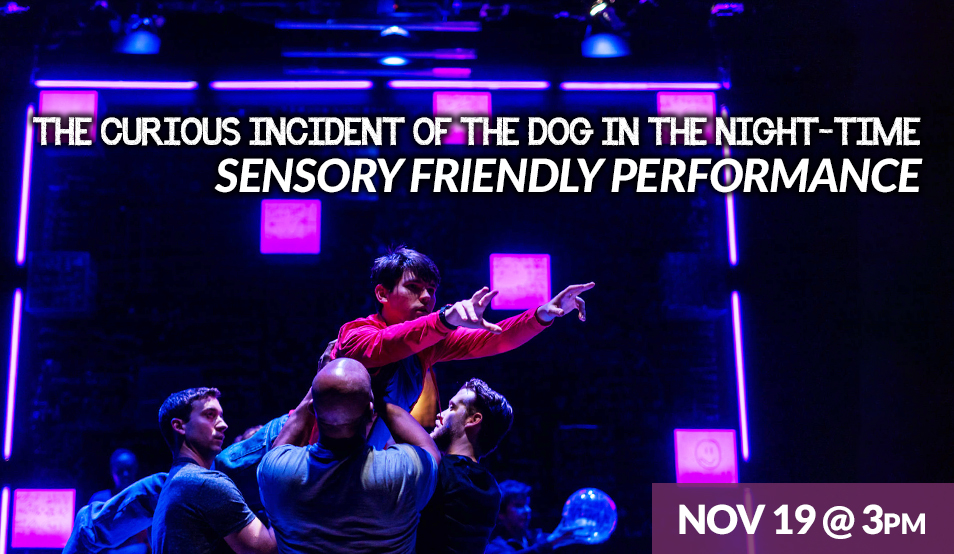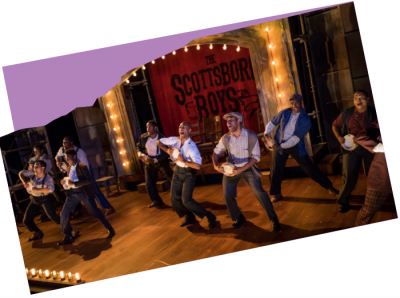Your donation sets the stage for a new season of Boston's most intimate, entertaining and provocative plays and musicals. Our shows make powerful connections with our audiences-- and they are only possible because of you.
Interview with Artistic Fellow Joe Juknievich on Sensory Friendly Performance




Interview with Artistic Fellow Joe Juknievich on Sensory Friendly Performance


Joe Juknievich is the current Artistic Fellow at SpeakEasy Stage Company for the 2017-2018 theatrical season. He graduated from the University of New Hampshire in 2016 where he studied American History and Theatre. While in college, he was an active leader in the University of New Hampshire’s student-run drama organization, the Mask and Dagger Dramatic Society. During his involvement, he directed a production of Bert V. Royal’s Dog Sees God as well as Sarah Ruhl’s Eurydice and was a chosen semi-finalist in the Kennedy Center American College Theater Festival’s SDC Directing Initiative. Additionally, his play, The Last Testament of Ethel Rosenberg, was chosen as a finalist for the University of New Hampshire’s Undergraduate Prize Plays. Since moving to Boston in 2016, he has worked with several Boston theater companies such as the American Repertory Theater (in the capacity of a Production Assistant) and Commonwealth Shakespeare Company’s Apprentice Program (in the capacity of an Assistant Director). This winter, he will be directing Exiled Theatre’s upcoming production of Nurse Play by James Wilkinson and will be assisting Paul Daigneault next spring on SpeakEasy Stage Company’s production of ALLEGIANCE.
We asked Artistic Fellow Joe Juknievich a few questions on his work for SpeakEasy’s sensory friendly performance of THE CURIOUS INCIDENT OF THE DOG IN THE NIGHT-TIME.
What got you interested in planning this sensory friendly performance of CURIOUS INCIDENT?
I’ve been a longtime fan of Curious Incident since reading the novel about ten years ago and having the opportunity to see the production in London twice before coming to SpeakEasy, so I was anxious to help with the success of this production in any way possible. I’m a firm believer in making theater accessible to as many people as possible -not just openly tolerating, but actively inviting diverse peoples to performances. It hasn’t been long since I first learned about theater companies producing sensory-friendly performances, but I think they’re a great way to actively diversify an audience and make possible an experience for theater-goers that may have been impossible without the accommodations provided in a performance like this. Seeing that Curious Incident tells the story of a character that might otherwise be excluded from a theatrical performance due to sensory input issues, I thought it important that this production, especially, accommodate audience members like Christopher Boone, so I was excited to take the initiative in planning it.
What do your responsibilities entail in planning this performance?
I’m largely the coordinator/facilitator in assembling the people and resources necessary for making this performance a success. My biggest ally and consultant in this performance has been Rhoda Bernard, the Managing Director of Arts Education and Special Needs at Boston Conservatory, without whom this would have been difficult. Using her insight, I’ve assembled special resources about the performance that can be found on the SpeakEasy website, drafted a budget for the performance, led a production meeting outlining the day-of logistics, briefed house staff at the Calderwood Pavilion, and assisted in planning the day-of operations for the performance.
How is planning this sensory friendly performance different than the way you work on other productions?
This performance is largely about coordinating logistics and making accessible a production already in the making. The idea is tell the same story, present the same material, and provided the fullest experience possible, all while retaining the artists’ artistic integrity and accommodating a neuro-diverse audience. In some ways, you’re keeping the audience in your mind more actively than you might a performance without this purpose in mind.
Why do you think putting on performances like this are important?
I think theater is not only meant to tell stories about all walks of life, but also something meant to be experienced by all walks of life. By offering performances like this, we are able to make this vital story more accessible to community members it aims to portray.
What excites you about this performance?
I am most excited to engage with a community that might not otherwise have the opportunity to go to the theater. I’m anticipating a great deal of engagement from this audience, and I’m looking forward to watching that play out.
What do you hope audiences will experience when attending this performance?
I am hoping audiences experience the same story they would see at any other performance with the added benefit of doing so in a judgement free zone. I hope they will have the fullest experience possible without the normal restrictions of a regular performance.
Is there anything else you want to share about this event?
Follow this link to visit our designated webpage for more information about the performance as well as a downloadable Character and Synposis Guide and Social Story. A Social Story is a kind of tool meant to help individuals on the autism spectrum navigate interpersonal communication and prepare for new experiences like going to the theater. This guide is meant to better prepare patrons and their for families for what to expect at a performance at the Calderwood Pavilion.
 Past Productions
Past Productions LAUGHS IN SPANISH
LAUGHS IN SPANISH PRU PAYNE
PRU PAYNE ain't no mo'
ain't no mo' a man of no importance
a man of no importance JAJA’S AFRICAN HAIR BRAIDING
JAJA’S AFRICAN HAIR BRAIDING




